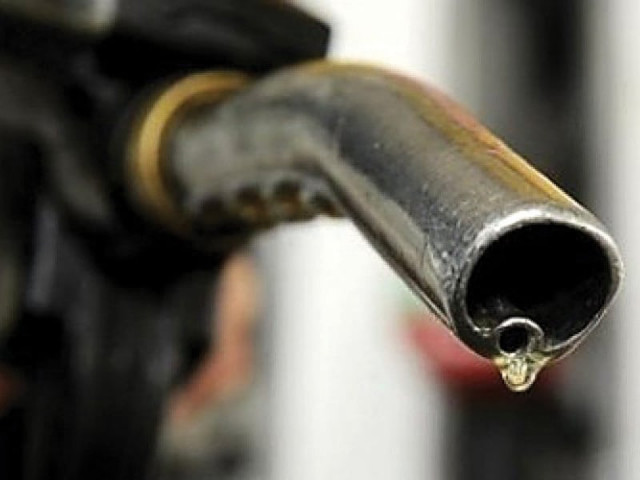Giving up control: Understanding reached on deregulating petrol margins
Will lead to varying prices of oil across the country, to attract opposition.

The petroleum ministry had proposed deregulation of petrol margins for six months, however, the OMCs refused to take responsibility of the conduct of dealers if they manipulated the price after deregulation. PHOTO:FILE
The federal government and oil marketing companies (OMCs) have come to an understanding about deregulating petrol margins, a move that will lead to varying prices of oil across the country and may attract fierce criticism from political circles.
“The Ministry of Petroleum and Natural Resources and OMCs have agreed to deregulate petrol margins and a mechanism is being finalised,” a source said. However, it will draw strong criticism, especially from Khyber-Pakhtunkhwa, where the oil price is expected to be higher than other parts of the country.
According to sources, the petroleum ministry had proposed deregulation of petrol margins for six months, however, the OMCs refused to take responsibility of the conduct of dealers if they manipulated the price after deregulation.
“If control over margins is lifted, provinces especially Khyber-Pakhtunkhwa may press for deregulating prices of electricity as it did during the previous government,” an official commented.
The previous Pakistan Peoples Party-led government had also decided to give up control over the inland freight equalisation margin on petroleum products, but backed off following opposition from political groups. At that time, some political parties including Pakistan Muslim League-Nawaz (PML-N) and Awami National Party (ANP) asked the government that it should also deregulate power tariffs along with the freight margin.
The Economic Coordination Committee (ECC) had approved deregulation of road and rail components of the freight margin in July 2010. However, the decision was withdrawn due to resistance from political parties that had formed governments in provinces.
At present, the OMCs charge uniform prices for petroleum products in a regulated mechanism for freight margin. After deregulation, oil prices are expected to vary in different parts of the country depending on the distance from oil storages.
In a summary sent to the ECC for discussion in its meeting on February 13 this year, the petroleum ministry had proposed deregulation of petrol margins for six months. For diesel, it suggested an increase of Rs0.16 per litre in the margin for OMCs and Rs0.40 per litre for dealers. No decision could be taken on the summary as it lacked comments from the ministries concerned.
Officials said the OMCs and dealers did not agree with the proposed increase in margins and the ministry was now discussing the issue with them. They want the margins to be set in terms of percentage, which will change in line with variation in oil prices.
Ogra’s proposal
The Oil and Gas Regulatory Authority (Ogra) rejected the demand of oil firms and dealers and suggested that petroleum product margins should be fixed in a bid to provide relief to the consumers.
A study, conducted by the Pakistan Institute of Development Economics, has recommended annual review of the margins of OMCs and dealers based on markup on assets and the Consumer Price Index (CPI) published by the State Bank of Pakistan.
Published in The Express Tribune, March 12th, 2014.
Like Business on Facebook, follow @TribuneBiz on Twitter to stay informed and join in the conversation.



















COMMENTS
Comments are moderated and generally will be posted if they are on-topic and not abusive.
For more information, please see our Comments FAQ